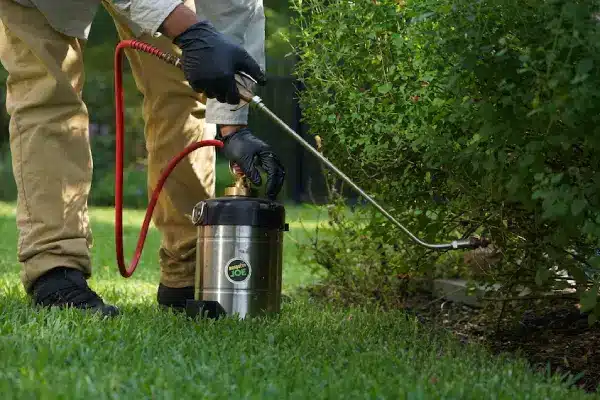For gardeners, nothing is more delightful than time spent caring for and cultivating plants. But nothing can ruin this pastime more effectively than a mosquito! Over the years, more and more articles have been written detailing various mosquito repellent plants that will allow the gardener to get back to enjoying their yard again. Almost all of these plants are fragrant and include citronella, mints (peppermint, horsemint, mint), lemon balm, lavender, marigolds, petunias, basil, and lemongrass.
Since mosquitoes locate us by smell, it seems logical that a fragrant plant would impede their ability to find us, right? A mosquito can sniff out your carbon dioxide fumes from over 150 feet away and have an incredible sense of smell. Perhaps this is why the concept of plants repelling mosquitoes gained traction and became more popular; it seems very logical. DEET also has a strong smell, perhaps further convincing us that the odor is the repellant. Big box stores even jumped on the bandwagon, labeling various plants as “mosquito repellent”.
The Science Behind The Plant
There has been a substantial amount of scientific research applied to the theory that plants have the ability to repel mosquitoes. All of the research we read showed that there is no significant difference in the number of mosquitoes landing on a human subject when plants are present versus not. This applies to all the plants mentioned above, including citronella.
While on the face of it this seems surprising, it can be better understood when you dig deeper. While a lavender plant smells delightful when you bend over to smell it, it does not fill the air around you with fragrance. The fact is, plants release a significant amount of their fragrant oils only when crushed. It is this extract from the plant that has the repellant properties, and only when the active ingredients within it are applied to the skin.
Homemade Mosquito Repellent
So, if mosquito repellant plants don’t really exist, at least in their plant form, what about the option of homemade mosquito repellant? There are certainly plenty of recipes out there. Before we get to those, a few important reminders:
Essential oils from lavender, catnip, eucalyptus, lemongrass, and other “mosquito repellant plants” (AKA plant oils) can be combined with a carrier oil (olive oil, almond oil, and grapeseed oil are great ones) and witch hazel, along with ½ teaspoon of Vodka, which acts as a preservative. As we discussed above, it takes quite a bit to repel the mosquitoes, so be prepared to add about 100 drops of your essential oil to 2 tablespoons of oil. Herbal mosquito repellents work the same way, using essential oils from basil or rosemary to get the job done.
It is a good idea to visit the EPA website for more guidance on skin repellents. They also have an excellent search tool for finding the one that is right for you.
For those DIY folks, try using the ingredients and recipes found within these articles – “10 natural ingredients that repel mosquitoes” and “natural homemade mosquito repellent as effective as DEET”.
The Truth about Mosquito Repelling Plants
There is truly no such thing as a mosquito repellant plant. Rather the extract from these plants can act as a short-term mosquito repellant, if mixed with carrier oils. The same methodology can be applied within the yard to reduce your mosquitoes, but only if done in conjunction with water management.
Quick tip: It is important to remember that the number one source for mosquitoes is water. If you do not treat and manage the water in your yard as well, you will never garden alone. Just one teaspoon is enough water for mosquitoes to breed in and managing that is a vital part of what we do.
After reading this if you decide you’d rather treat your yard with natural mosquito spray than your body, we have the solution for you! To get those pesky mosquitoes out of your yard, Mosquito Joe offers a natural treatment option, using concentrated garlic and peppermint. Since these natural oils break down in heat and sunlight relatively quickly, we recommend the service every 2 weeks.
Contact us or message us on Facebook to learn more about our services or to schedule your treatment today!
Searching through dozens of home and commercial service providers is a thing of the past. Rely on Neighborly’s national network of trusted, local service professionals for all your home and commercial service needs.





 App Store
App Store
 Google Play Store
Google Play Store